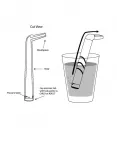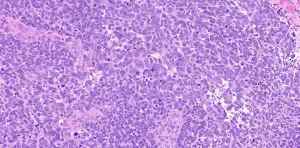(Press-News.org) June 18, 2021 - At least so far, the currently limited research base does not establish that cannabis has additional adverse effects on brain development or functioning in adolescents or young adults with attention-deficit/hyperactivity disorder (ADHD), concludes a review in the July/August issue of Harvard Review of Psychiatry. The journal is published in the Lippincott portfolio by Wolters Kluwer.
While ADHD is clinically defined to have impairments in cognitive functioning, cannabis use by itself is also associated with cognitive impairments: "[T]he evidence to date does not clearly support either an addictive effect or an interaction - whether protective or harmful - with cannabis use," according to the study by Philip B. Cawkwell, MD, of Stanford University School of Medicine, and colleagues. They underscore the need for further research to clarify possible effects of cannabis on brain structure, function, and behavior in young people with ADHD.
'Urgent need' for definitive studies of cannabis risk in teens with ADHD
The trends toward legalization and increased accessibility and potency of cannabis pose special concerns in young people living with ADHD. About one-fourth of teens with substance use disorder also have ADHD, while youth with ADHD are six times more likely to have drug or alcohol abuse. Some people with ADHD may even feel that cannabis improves their symptoms, studies suggest. Both groups have similar difficulties on cognitive tests, suggesting that youth with ADHD might be particularly vulnerable to effects of cannabis on cognitive function.
Dr. Cawkwell and colleagues performed a systematic review of research on the combined effects of cannabis use and ADHD in adolescence. Out of hundreds of initial "hits," the search identified just 11 studies assessing any type of neurodevelopmental outcome in adolescents or young adults with ADHD who did use cannabis compared with those who did not use cannabis.
Seven studies assessed neuroimaging findings for young ADHD patients, showing some significant differences in brain structure in cannabis users. Findings included decreased thickness in areas involved with motor and sensory function (such as the right precentral and postcentral gyri) and increased thickness in areas involved in the brain's "reward" system (such as the left nucleus accumbens). Given the limitations of the studies, the authors stress that these findings must be considered with caution and that it was impossible to determine whether or not these findings reflect causal relationships.
Functional imaging studies also reported differences in cannabis users with ADHD. Findings included differences in performance on standardized tasks and reduced density of dopamine transporters, thereby affecting the availability of dopamine, which plays a key role in the reward system.
Four studies looked at the results of neuropsychological tests or questionnaires in young people with ADHD who did and did not use cannabis. Cannabis use was associated with impaired performance on tests of sustained attention. However, the studies found no significant interaction between ADHD and cannabis use.
"Surprisingly, as cannabis use demonstrates clear and consistent adverse effects on cognition as measured by neuropsychological task performance, no study identified a significant differential impact of cannabis use on these measures for individuals with ADHD compared to non-users," Dr. Cawkwell and colleagues write. "However, this lack of interaction may just be due to the limited number of studies to date, rather than a true lack of impact," caution the study authors.
The authors note that the key limitation to this research is both the number of studies and the overall number of participants are limited. Some studies suggested differences in the effects of cannabis use at earlier ages ? a critical gap for further research. Additional factors the authors suggest need further examination include the potency of cannabis (which has roughly tripled in the past two decades, according to prior research) and the frequency of use.
Future studies may provide more definitive answers - particularly the ongoing "ABCD" study, which will provide long-term data on more than 10,000 participants followed up from age 10 to 20. Dr. Cawkwell and coauthors conclude: "[T]his important study may begin to provide answers to some of the questions that this paper has shown to be unanswered - including understanding whether cannabis does truly alter neural circuitry in youth with ADHD, how this impacts task performance, and perhaps most critically, the longer-term functional outcomes for adolescents with ADHD who also use cannabis."
INFORMATION:
Click here to read "Neurodevelopmental Effects of Cannabis Use in Adolescents and Emerging Adults with ADHD: A Systematic Review."
DOI: 10.1097/HRP.0000000000000303
About the Harvard Review of Psychiatry
The Harvard Review of Psychiatry is the authoritative source for scholarly reviews and perspectives on a diverse range of important topics in psychiatry. Founded by the Harvard Medical School Department of Psychiatry, the journal is peer reviewed and not industry sponsored. It is the property of Harvard University and is affiliated with all of the Departments of Psychiatry at the Harvard teaching hospitals. Articles encompass major issues in contemporary psychiatry, including neuroscience, epidemiology, psychopharmacology, psychotherapy, history of psychiatry, and ethics.
About Wolters Kluwer
Wolters Kluwer (WKL) is a global leader in professional information, software solutions, and services for the clinicians, nurses, accountants, lawyers, and tax, finance, audit, risk, compliance, and regulatory sectors. We help our customers make critical decisions every day by providing expert solutions that combine deep domain knowledge with advanced technology and services.
Wolters Kluwer reported 2020 annual revenues of €4.6 billion. The group serves customers in over 180 countries, maintains operations in over 40 countries, and employs approximately 19,200 people worldwide. The company is headquartered in Alphen aan den Rijn, the Netherlands.
Wolters Kluwer provides trusted clinical technology and evidence-based solutions that engage clinicians, patients, researchers and students in effective decision-making and outcomes across healthcare. We support clinical effectiveness, learning and research, clinical surveillance and compliance, as well as data solutions. For more information about our solutions, visit https://www.wolterskluwer.com/en/health and follow us on LinkedIn and Twitter @WKHealth.
For more information, visit http://www.wolterskluwer.com, follow us on Twitter, Facebook, LinkedIn, and YouTube.
After graduating or leaving college, many students face a difficult choice: Try to pay off their student loans as fast as possible to save on interest, or enroll in an income-based repayment plan, which offers affordable payments based on their income and forgives any balance remaining after 20 or 25 years.
There are pros and cons to each option, and trying to discern the better path can be daunting. That's why University of Colorado Boulder's Yu-Jui Huang and Saeed Khalili, a former graduate student in financial mathematics, along with Dublin City University's Paolo Guasoni, decided to throw a little mathematical ...
HOUSTON - (June 18, 2021) - To boost employees' creativity, managers should consider offering a set of rewards for them to choose from, according to a new study by management experts at Rice University, Tulane University, the University of North Carolina at Greensboro and National Taiwan Normal University.
The study, co-authored by Jing Zhou, the Mary Gibbs Jones Professor of Management and Psychology at Rice's Jones Graduate School of Business, is the first to systematically examine the effects of reward choice in a field experiment, which was conducted in the context of an organizationwide suggestion ...
MINNEAPOLIS/ST. PAUL (06/18/2021) -- University of Minnesota Medical School researchers determined that the common blood pressure medication, losartan, is not effective in reducing hospitalization for mildly-ill COVID-19 outpatients.
In the multicenter, randomized, double-blinded clinical trial, non-hospitalized patients recently diagnosed with COVID-19 were given either losartan or a placebo and monitored for 15 days. The study's results, which were published in END ...
Left hands and right hands are almost perfect mirror images of each other. But whatever way they are twisted and turned, they cannot be superimposed onto each other. This is why the left glove simply won't fit the right hand as well as it fits the left. In science, this property is referred to as chirality.
Just like hands are chiral, molecules can be chiral, too. In fact, most molecules in the cells of living organisms, such as DNA, are chiral. Unlike hands, however, that usually come in pairs of left and right, the molecules of life almost exclusively occur in either their "left-handed" or their "right-handed" version. They are homochiral, as researchers say. Why that is, is still not clear. But ...
SAN ANTONIO (June 18, 2021) -- Researchers from The University of Texas Health Science Center at San Antonio (UT Health San Antonio) and colleagues worldwide describe a new science-based intervention for hiccups in a research letter published June 18 in the journal JAMA Network Open.
In the publication, the scientists coined a new term for the intervention: the "forced inspiratory suction and swallow tool," or FISST. The team also reported the results of a survey of 249 users who were asked whether it is superior to hiccup home remedies such as breathing into ...
An international team led by researchers at Princeton University has uncovered a new pattern of ordering of electric charge in a novel superconducting material.
The researchers discovered the new type of ordering in a material containing atoms arranged in a peculiar structure known as a kagome lattice. While researchers already understand how the electron's spin can produce magnetism, these new results provide insights into the fundamental understanding of another type of quantum order, namely, orbital magnetism, which addresses whether the charge can spontaneously flow in a loop and produce magnetism dominated by extended orbital motion of electrons in a lattice of atoms. Such orbital currents can produce unusual quantum ...
Cancer cells have an uncanny ability to evolve and adapt to overcome the treatments used against them.
While patient survival has been extended by modern drugs that block the production or action of male hormones that fuel prostate cancer -- androgen receptor inhibitors such as enzalutamide, apalutamide, darolutamide, and abiraterone -- eventually these drugs stop working. At that point, a patient's disease is considered incurable, or what doctors call metastatic, castration-resistant prostate cancer.
In a new study, a team of researchers led by Joshi Alumkal, M.D., who ...
BIRMINGHAM, Ala. - Will a reduction in tau protein in brain neurons protect against Parkinson's disease and Lewy body dementias?
A new study, published in the journal eNeuro, suggests the answer is no. If this is borne out, that result differs from Alzheimer's disease, where reducing endogenous tau levels in brain neurons is protective for multiple models of the disease -- which further suggests that the role of tau in the pathogenesis of Lewy body dementias is distinct from Alzheimer's disease.
Both Parkinson's disease dementia and Lewy body dementia are characterized by intracellular aggregates of misfolded alpha-synuclein protein in brain neurons, and the two diseases together are the second most common cause of neurodegenerative dementia after ...
Lake Victoria, which came under the spotlight in 2004 by the documentary "Darwin's nightmare", is not only suffering from the introduction and commercialisation of the Nile perch. A study lead researchers from the University of Liège (Belgium) has highlighted other worrying phenomena, particularly climatic ones, which have an equally important impact on the quality of the lake's waters.
Located in East Africa, just south of the Equator, Lake Victoria is the source of the Nile and is the largest tropical lake in the world. With a surface area of 68,800 km² (twice the size of Belgium), it is considered to be one of the largest water and fishery resources in East Africa, supporting more than 47 million people in the three neighbor countries ...
Colorado State University Professor of Psychology Silvia Sara Canetto has spent many years researching patterns and meanings of suicide by culture, trying to make sense of the variability in women's and men's suicide mortality around the world. Suicide rates are generally higher in men than in women, but not everywhere - which suggests cultural influences.
Canetto and colleagues have completed a new study that provides insight into what may contribute to men's suicide vulnerability. The study tests Canetto's theory that men's suicide mortality ...



